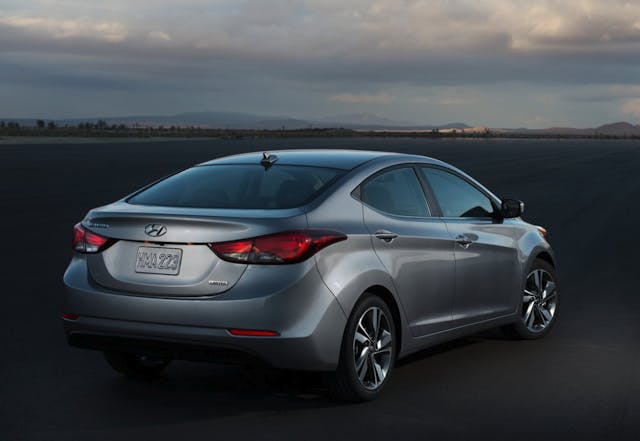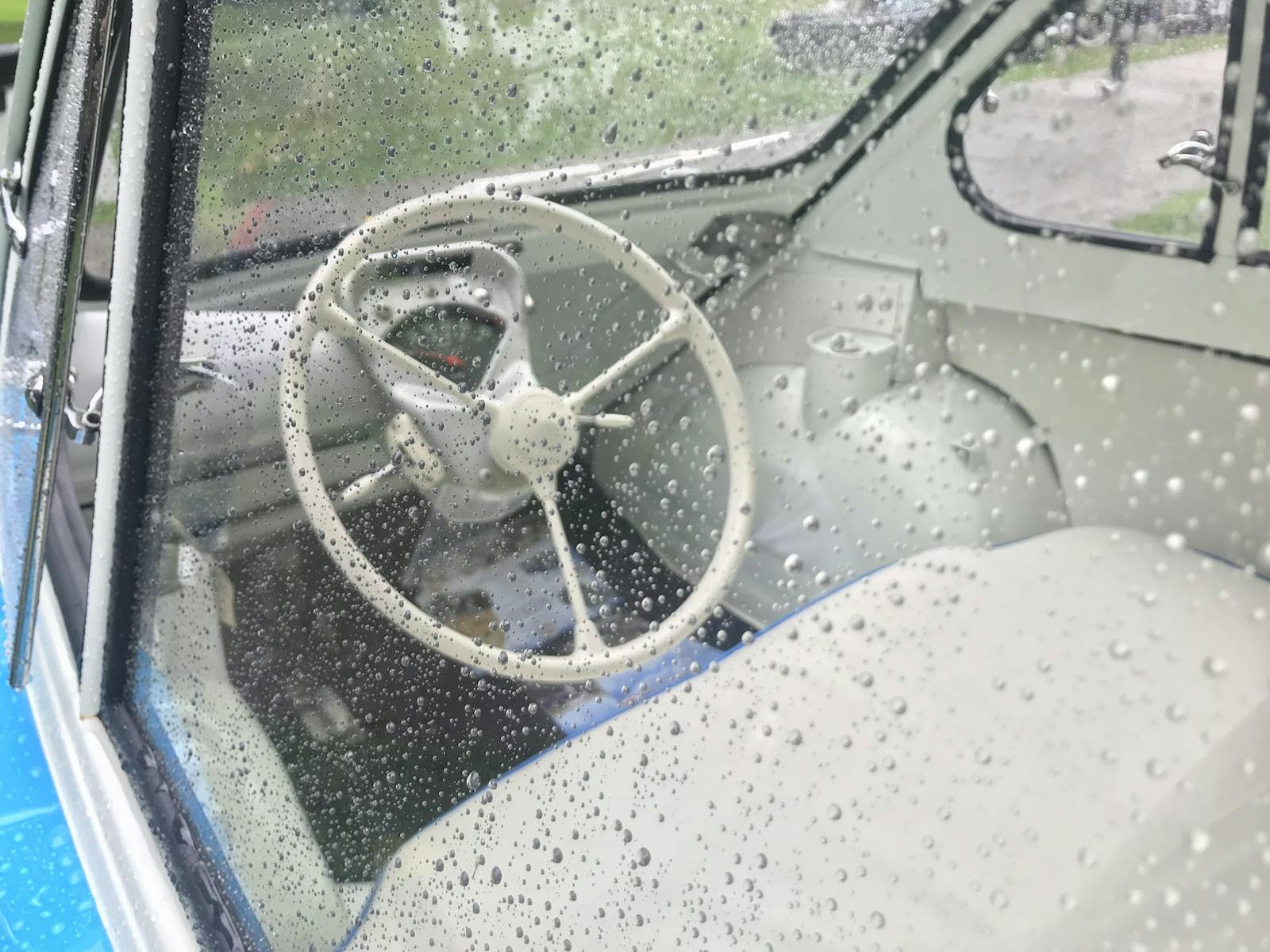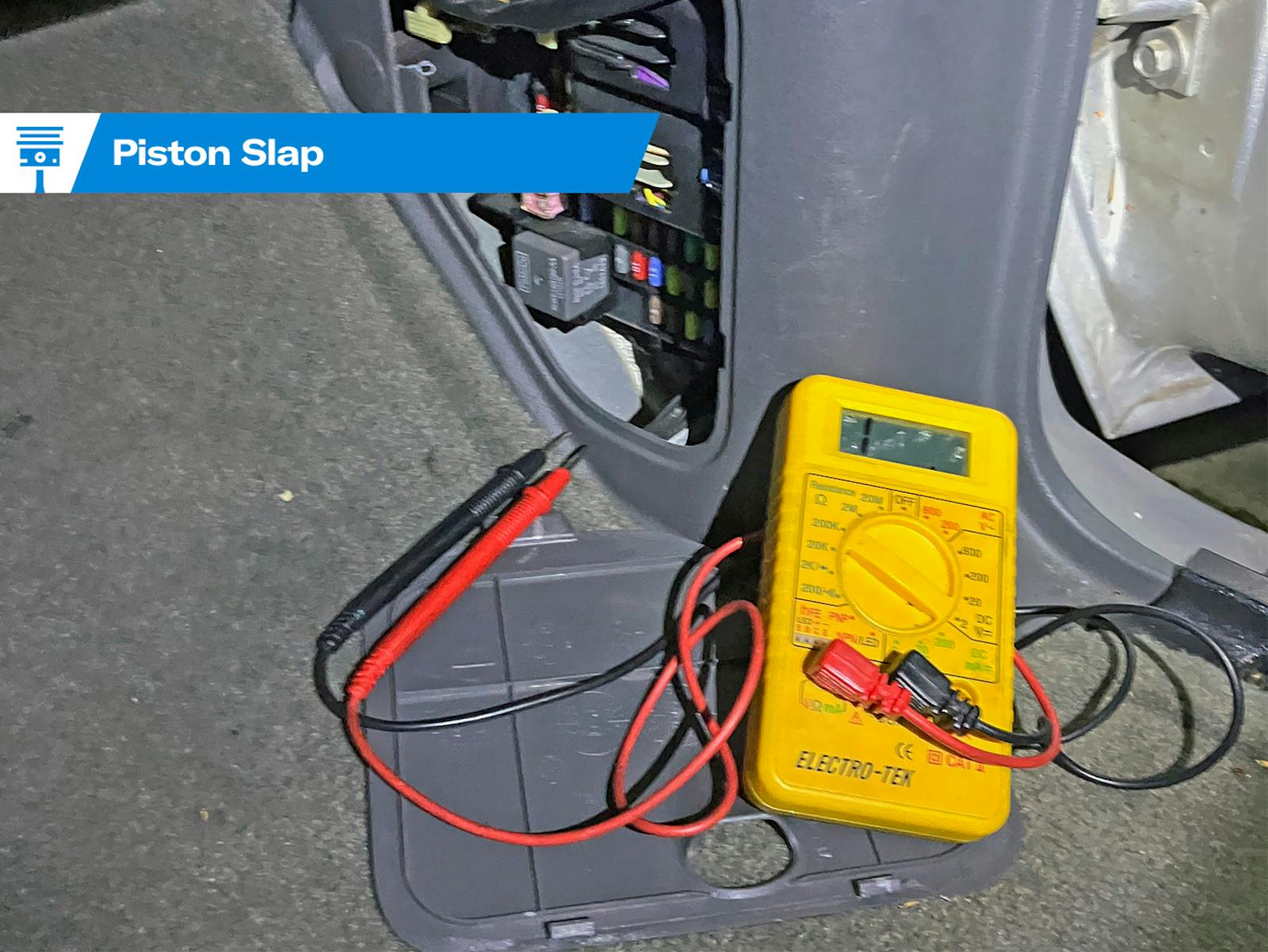Piston Slap: Giving thanks for a cornucopia of slaps

This is a week of giving thanks across North America, and my Piston Slap column is no different. I wish to thank the folks who email me questions (I can always use more at pistonslap@hagerty.com) for this series and the commentators for personally enriching my knowledge base. And since many of us shall be consuming large amounts of carbs and tryptophan-laden dishes, let’s once again enjoy the tradition of overindulging in the automotive problem that is this series’ namesake: slapping pistons and failing engines!
John writes:
I have that piston slap, how can I stop the rattling on cold start?
Sajeev answers:
You can’t do much, because the noise comes from between the piston and the cylinder of the engine. For most folks it’s better to deal with the noise because fixing it costs thousands at a machine shop—maybe tens of thousands if the motor is for some exclusive specialty car. No matter the application, going to a heavier oil weight can help, but that might have unintended consequences for the engine elsewhere if it wasn’t made for it. Best you change the oil regularly, and be OK with the noise when cold.

Justin writes:
I read the article about piston slap on 2011–13 Hyundai Elantra 1.8 engines (TSB 14-20-002). I’m a mechanic myself and I’ve known that Hyundais have had this issue for years now. My mother recently purchased a ’13 Hyundai Elantra with full service records and only 58,000 miles on it. Car went in to limp mode about a week ago and after inspecting it, I can confirm I hear the piston slap within the engine.
I am planning on going to the dealer and demanding a replacement engine under the warranty. Original bumper-to-bumper warranty being 6 years/60,000 miles, which it hasn’t even hit yet, and the class action lawsuit settlement having extended the warranty to 10 years/120,000 miles. I’m reaching out wondering if you can foresee any problems occurring with me going that route? Yes, it’s 2023 and 10 years from production date of vehicle, but it hasn’t even hit 60K let alone 120K.
Sajeev answers:
I anticipate an uphill battle, especially if you demand something from an overworked service advisor who’s about as burnt out with their career as you are with this Elantra. So play the empathy card, and see if the dealer/Hyundai district manager is more charitable than needed to keep their job. If your mom bought the Elantra from a Hyundai dealer, I anticipate they will put the new motor in with zero stress. If not, they don’t have an ongoing relationship (as it were) and could reject the claim.
Worst-case scenario, you might be able to get a new motor for less money, just because the mileage is so low. Maybe you can get the motor from the district manager and install it yourself? Offer things like this if at all possible. I would also scan customer reviews/ask other local mechanics to see if one Hyundai dealer is staffed with folks who are better with escalations to the Hyundai mothership than others in your area.
Mike writes:
My parents purchased my Elantra in Virginia and gave me the car in 2018. The “slap” noise started after starting on a very cold morning (Virginia, after all) in December 2022. I could not afford to take it to dealership, and since no lights were on, I drove the car just fine. Regular oil changes were done, many from Hyundai. Nothing else is wrong with the car. Did not know about piston slap until my mom looked it up after she heard the noise two weeks ago.
Took it to a Hyundai dealer this week. They say my VIN does not qualify for the lawsuit settlement (but I have the year and engine listed in lawsuit). They also say I am out of warranty anyways because the settlement only extended warranty to 120K and mine has 140K. I don’t have money to buy a car. What can I do?
Sajeev answers:
Much like Justin’s concerns, because of the mileage, and the fact you aren’t the original owner, you are also in for an uphill journey. I have a similar Hail Mary for you: Escalate the issue with any Hyundai dealer that’s willing to work with a Hyundai district manager to see if they can do a partial goodwill repair for you. While this repair may not include a new engine for free, maybe if you ask nicely they can heavily discount the job for you.

Sue writes:
I have a 2013 Subaru Forester that had oil consumption and piston slap upon startup. It was purchased new in 2013, and it now has approximately 140K on the clock. I am on my THIRD short-block with new improved oil rings, and I switched from 0w-20 to 5w-20 oil and still have to add two quarts between 5000-mile changes. When the car sits overnight I get a piston slap (or light clicking?) upon startup, which goes away after it warms up. I am thinking the last new set of oil rings are broken in and piston skirting is worn down on all pistons causing the noise? As long as the mileage is not changing can you offer any advice or figure just keep driving until it dies?
Sajeev answers:
Three short-blocks, hmm? Well, let’s hope the third time is indeed the charm, as what you are experiencing is the best its gonna get. We all have to take a leap of faith, because we must have faith that new short-locks are assembled/machined correctly to match the piston rings. You can’t dig in there and verify the work was done correctly for yourself. If this is an engine from Subaru, monitor its health (oil consumption, piston slap noise) and see if it degrades during the factory warranty period. I am hoping your current engine will outlast the 10-year-old chassis around it, and you can merely drive it until it dies. Hopefully that will be a long, long, long time from now.
Have a question you’d like answered on Piston Slap? Send your queries to pistonslap@hagerty.com—give us as much detail as possible so we can help! Keep in mind this is a weekly column, so if you need an expedited answer, please tell me in your email.
***
Check out the Hagerty Media homepage so you don’t miss a single story, or better yet, bookmark it. To get our best stories delivered right to your inbox, subscribe to our newsletters.


Sajeev – I notice in Sue’s question, she describes her cold engine sound as possibly “clicking” as opposed to slapping or knocking, etc. This might be a good time to remind your readers that cold engine sounds (or indeed, sounds at any temp) can be caused by multiple issues, and please don’t assume that everything is piston slap. For instance, a clicking sound can be – and usually is – coming from the valve train and not piston/cylinders. And in some cases, a slight exhaust leak can sound like a click (or tick) that can even go away as the engine warms and metal parts expand. Engine “knocks” tend to be a LOT more troublesome than any other sound that can be confused with “slapping”. The point is, take care to isolate WHAT the sound is and WHERE it’s coming from, as some sounds can be way more serious than a piston slap when cold. Identifying those two things (what/where) can tell both the owner and the mechanic tons of things!
[Heck, you could even toss out a column wherein you explain ways to isolate those answers, like the old screwdriver-between-ear-and engine method, or even a stethoscope, etc.!]
This is great input for me and advice for others. I am not sure if I can help narrow down those noises (heck, even fuel injectors can tick in cold weather) especially with how modern cars have engines buried under acres of plastic hoses and covers. Heck, the GM truck engines known for this are usually very hard to reach, as they are buried so deep in a huge body that you have to jump in there to get a screwdriver on it!
Also, there’s the problem of people’s ears hearing things differently. But maybe I can come up with some boilerplate language that will encourage others to poke around to isolate the noise, it never hurts.
To the Subaru owner. It is common to have a noisy motor, especially at startup. But it is not necessarily piston slap. It is often cured with correct oil changes and, most importantly, using the correct oil filter- preferably an oem one. Subaru has convenienrly placed the filter up high on top of the motor and so easy to replace. But is is high and upside down and aftermarket filters ususlly don’r have the built-in valve to keep oil from seeping down out of the filter. This lack causes the timing chain tensioner to make noise until it fills and expands, making a loud, scary rattle for a few seconds. Another lesson I got at Charred Tush University (the school where you learn by getting your fanny burnt).
The no check valve, cheapo oil filter issue affects many cars. Bad place to save a few bucks.
Is the slap happiest of articles? Maybe.
We had a 2010 Forester XT that developed massive oil consumption issues at 160k or so on the odometer. Sold it while it still ran.